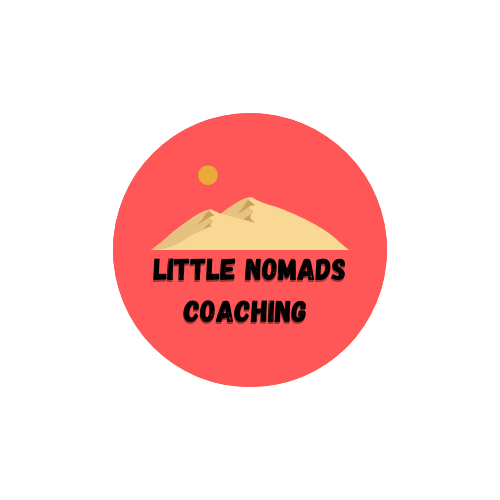NEW SERIES ALERT! 📢
Are you an expat? Have you heard of an expat coach? And have you thought…what the F*** is an expat coach?! And what the F*** do they do?
You’re not alone.
I’d never heard of an expat coach before I moved abroad and started this little blog. Then suddenly, it seemed like they were everywhere. On the surface it makes sense and in hindsight, I wish I had employed the help of someone to help me settle in better because, boy, did I have a rough ride.
However, I’ve always been sceptical about coaching in general. Services such as Life Coaching and Health/Wellness Coaching are largely unregulated, leaving room for a LOT of bad and, sometimes, dangerous advice to be thrown out there for people to follow. And you and I both know that many people on the Internet don’t check sources or research anything before they fall for it. You need only open Facebook for 30 secs to see that these days…
I digress. You get the point. I’m sceptical.
But I’m also prepared to have my mind opened and changed. So I decided to face the coaches themselves and ask them the questions that have been rattling in my mind for so long.
This is the first interview in this short series with expat coaches. Enjoy!
What the f*** is an Expat Coach w/ Little Nomads Coaching
Meet Jessica 👋 She runs Little Nomads Coaching and offers her services in both English and German.

She’s worked in International Education for over 20 years and also has a background in psycho-social counselling. Her focus is on the well-being of expat mothers and families. See what she has to say about coaching below!
1. What is coaching?
Coaching is a very wide field and there are so many different coaches with different approaches out there.For me, coaching means supporting my clients on their own journey to better (mental) well-being and a more fulfilled and happy life. My coaching is deeply influenced by the fact that I am also a counsellor with a focus on person-centred counselling. While coaching is more solution-focused than counselling, I still put a lot of energy into listening to my clients and enabling them to work with their own tools.
2. Are you a therapist, a guidance counsellor or a consultant? Or none of these things? Or all of these things?
I am a guidance counsellor, a pedagogical consultant/advisor and a coach. I am not a therapist. I focus on working with moms as I have first-hand experience of how moms’ are readily blamed by society.
Before I started my own coaching business I worked in education and childcare for more than 20 years. I was always shocked to see how readily mothers will be blamed for the (perceived) shortcomings of their children. Over the years I also encountered countless mothers on the brink of burnout and many who were silently suffering but did not get any help or even knew how to ask for it.
Then I became a mother myself and so did many of my closest friends. Through our collective experiences, this aspect of “mom guilt” became more personal. This motivated me to qualify in ‘Psychosoziale Beratung und Counselling’ (Psychosocial Counselling and Coaching) at the Alice Salomon Hochschule in Berlin, quit my job as Head of the Counselling Team and Pedagogical Advisor at an International School and start my own endeavour working with mothers.
3. Define an expat.
In the classical definition, an expat is a person that is expatriated by their company to work abroad for a limited period of time.
However, when I say that I focus on expat moms, I also include mothers that accompany their partners abroad, mothers who left their home country and found a job abroad locally or even people who decided to travel the world.
I also work with migrants and repatriates. Basically, every mother who has been through the experience of living outside her ‘home’ country and feels shaped by this experience.
4. What is an expat coach?
Somebody who is a coach and focuses on working with expats (in the wider sense).
5. What inspired you to become a coach?
After countless negative experiences, while working in education and observing how mothers were often blamed for whatever could go wrong in their families, I felt a true calling to support other moms.
I felt the only way to be true to my conscience was to quit my job and start my own coaching business focusing on supporting moms.

6. What credentials do you have to support your coaching business?
I think that is a very important question as there seem to be many coaches out there who don’t have much to show in credentials or experience. Hence, I am proud of my own credentials which combine actual work experience, personal experience and a degree from a reputable University.
- 20 plus years work experience in (International) education and childcare
- Previous positions include Head of Counselling Team, Pedagogical Advisor, etc.
- Degree in Counselling and Coaching (Psychosoziale Beratung und Counselling ) from Alice-Salomon-Hochschule, Berlin
- Various CPDs from UK (e.g. Listening and Helping skills, Safeguarding), US (Mindful Educator) and Germany
- My own expat experience including 12 years living in the UK, Namibia and Dubai and counting
- I am a mom to two TCKs and also one half of a binational couple
7. What do you do exactly? I mean, how do you help people?
As I mentioned before I focus on coaching moms.
Basically, I am all about enhancing their mental well-being. The 3 key elements of my coaching are:
- Confronting Mom Guilt
- Reducing Mental Load
- Preventing Mom Burnout
As a coach & counsellor, my personal superpowers are listening and empathy. I respect my clients and do not judge them or their life choices (actually that should be true for all coach-client relationships!). I believe my personal attitude and the values that I represent is what my clients value most.
I am relatable and one of them – an expat mom who is honest about this journey and the challenges it comes with from time to time.
Honestly, I believe that any person already has all the tools they need to lead their best life. They are the experts in their own life. However, sometimes, for various reasons, mothers lose trust in their own abilities and their inner knowledge. This is often a direct result of societal pressures and the sheer volume of parental advice from various sources that are often conflicting.
I help those moms (re-) discover their strengths and encourage them to listen to their inner voice. In this way, I use a lot of techniques from positive psychology, person-centred counselling and mindfulness.
I am not the type of coach that will tell you: “Just follow my programme and your life will automatically improve.” I have a strong belief that every client is different and we need to look at your personal situation and the situation of your family. There is no “one-fits-all” solution. Together we will find the right solution for you, building on your own tools and expertise.
I am basically accompanying, motivating and supporting you to discover which path is right for you.
8. What do you not do? Who do you not help?
As mentioned before I am not a therapist. I do not treat people that suffer from mental health conditions. If during the course of our coaching, I believe you will benefit from consulting a therapist, psychiatrist or mental health expert, it is my moral obligation to inform you thereof.
9. Talk me through a typical expat coaching session. What exactly is my money getting me?
There is no typical coaching session as I look at every client as a new individual.
However, the first session is used to get to know each other. It is important for the client to get to know me and find out if the chemistry is right. Furthermore, I explore what their current situation is and we will explore which areas my client is looking for support or help in.
Together, we identify their hopes and goals for our coaching sessions together. This also helps determine the main topic of our sessions.
In the following sessions, we focus on looking at the client’s strengths and how those can be used to reach their own goals. During these sessions, I also introduce techniques that can help them deal with their challenges.
With my background in counselling, I am usually very successful in helping my clients unravel the solutions that will work best for them.
Let me give you an example.
Let’s say in our first session we discover that you struggle a lot with mom guilt. We then look deeper into this guilt and the different aspects of it. We ask questions like:
- Where does it come from?
- Does it have more intrinsic or more extrinsic origins?
- What kind of situations or comments trigger your mom guilt?
- How does it present itself?
After we explore your personal situation and how mom guilt affects you and the relationships you have, we start looking for solutions that will work best for you.
Ask yourself: “How would my life look like with less or no mom guilt? What would be different? How would I benefit from reduced mom guilt? And which steps can I take to get to this better situation?”
Let’s say we worked out that you mainly feel guilty about your parenting choices after talking to certain people. The way they comment on your parenting makes you feel judged and insecure about your parenting.
Then, the next step would be how to ensure their opinion will not upset you as much in the future. How could you establish better boundaries with those people? How can you stand up to them and stand by your own values and choices? Or do you feel the only way forward is to distance yourself from those people in your life?
As you see in this example my coaching is very person-centred and always aims at looking at the individual’s personal life circumstances. Also, it is solution-focused, meaning that we don’t dwell on the problems but rather look at how you want your life to improve and how to get there.
10. Do you think the expat experience is often hyped up too much online and can therefore have an adverse effect on aspiring or new expats who feel like they should be happy and wonderful all the time?
No, not at all.
From my own experience working with hundreds of expat moms, most do not feel the social pressure of the “hyped-up expat experience,” but much more the hyped-up expectations of perfect motherhood.
This is what my clients struggle with most.
I find expat moms have very similar difficulties to any other moms, no matter where they live. In my coaching, I focus more on themes such as mom guilt, mom burnout and mental load.
Yes, the circumstances of mothers living outside their home countries and the realities of dealing with such challenges are different, but at the core mothers all over the world face very similar issues. However, when we are looking at how to find solutions, the approach that expat moms will take have an added dimension. One of the crucial keys to better wellbeing is to build a social network which in some ways is more challenging when living abroad but in other ways can actually be easier.

If you’d like to book a FREE 30-minute discovery call with Little Nomads Coaching, you can book it here.
Little Nomads is also running a festive special which gets you 10% off all services when you buy one or more gift vouchers. Valid until 25th December.
You connect with Little Nomads Coaching online here and through Instagram.


Pingback: What exactly is expat coaching? Find out in 10 questions with Share the Love Coaching!
Pingback: What exactly does an Expat Coach do? Helping expats make friends abroad with Sarah, friendship and expat coach.
Pingback: What's the difference between an expat coach and an intercultural trainer? Discover it with Chameleon Coaching!